Gatwick oil reserves '70% higher than thought'
- Published
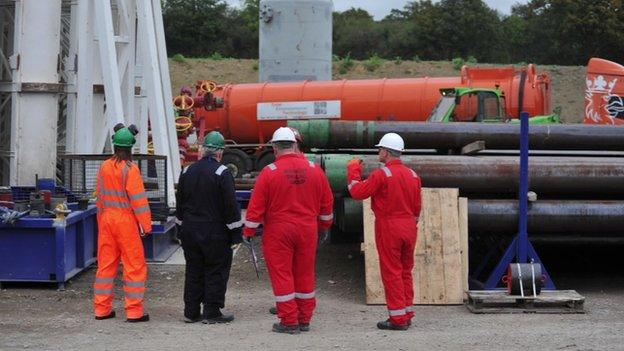
UK Oil & Gas says previous estimates of the amount of oil under the Weald were "substantially wrong"
The amount of oil in the Gatwick airport area could be about 70% more than previously estimated, an exploration company says.
UK Oil and Gas (UKOG) now estimates there are 271 million barrels of oil per square mile (mmbo) in the Weald. The total amount of oil in the field has not been revealed.
A previous report estimated about 158 mmbo, after exploration at Horse Hill.
Friends of the Earth said local people were concerned about pollution.
Brenda Pollock, of Friends of the Earth, said: "Today's announcement isn't something to celebrate.
"Oil extraction is deeply unpopular. Local people are rightly concerned about more lorries, air and water pollution, noisy drilling and disruption to village life."
UKOG said it was planning to drill more exploration wells in the Weald and was assessing the potential of the reserves in the area.
Oil has been produced onshore in the South of England for many years. There are currently about a dozen oil production sites across the Weald, an area spanning Kent, Sussex, Surrey and Hampshire.
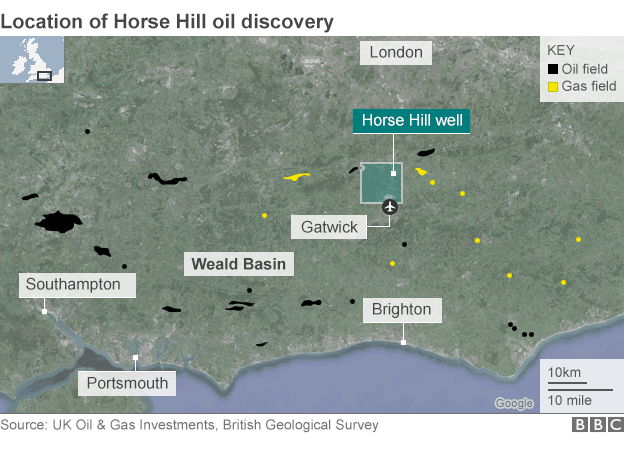
Fracking 'not on agenda'
Schlumberger produced the new report after analysing data from the Horse Hill well near Horley.
UKOG would not be drawn on the amount of oil in total which could be under the Weald.
David Lenigas, chairman of UKOG, said: "This really is a change of the model for the potential of oil around the Weal basin, particularly in the Horse Hill area."
He said UKOG was planning to drill more exploration wells and would need to conduct flow tests to work out how much of the oil was recoverable.
"Fracking is not our agenda, there is plenty of conventional oil in the Horse Hill well, to not even look past that," Mr Lenigas said.
Charlie Kronick, senior climate advisor to Greenpeace, said: "We don't need to spend time and money to find more oil in the UK; if we want to avoid catastrophic climate change, we need to find ways to use less oil, and fast.
"We're not facing a shortage of oil. The big challenge we face is leaving it in the ground."

Analysis: Yvette Austin, environment correspondent, BBC South East
This latest report by a second oilfield services company will come as a welcome relief to UK Oil and Gas, as well as the five other companies who have interests in Horse Hill Developments. Nutech Ltd's report in April estimated 158 million barrels of oil per square mile below the Weald Basin and Schlumberger's report today has increased that estimate to 271 million barrels per square mile.
But for now, the difference between the two amounts is fairly irrelevant. What counts for the companies is that both are large estimates.
Ultimately what really matters is how much of the oil is recoverable. Some experts say it will be very difficult to extract large quantities of oil from the area. In April UKOG said it believed it could recover about 5-15% of the oil in the ground; it isn't adding anything more to that statement today.
The company hopes flow testing will begin on the well towards the end of this year. The results of those tests will shed more light on how much can be brought to the surface.

- Published15 April 2015
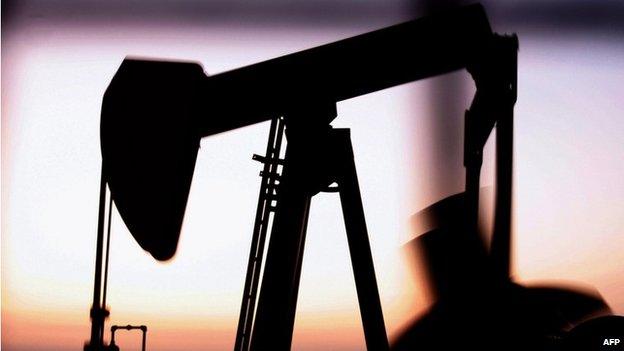
- Published9 April 2015
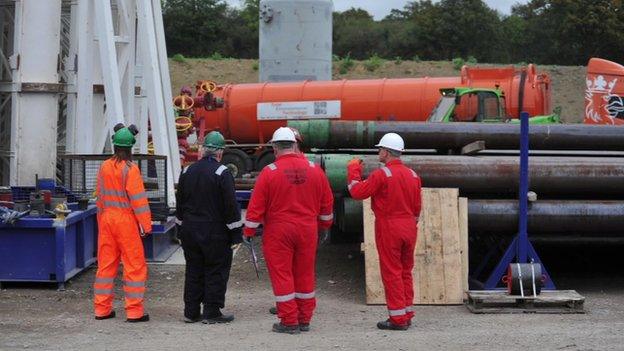
- Published14 October 2014
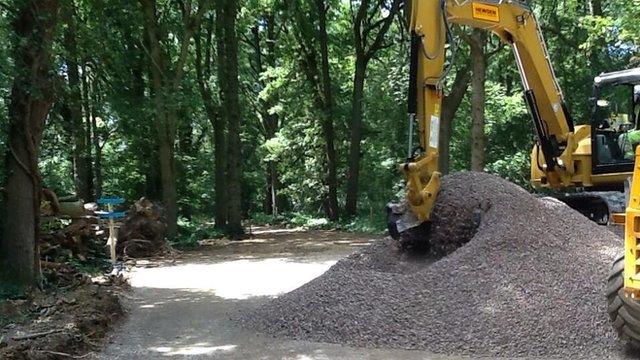
- Published17 November 2010